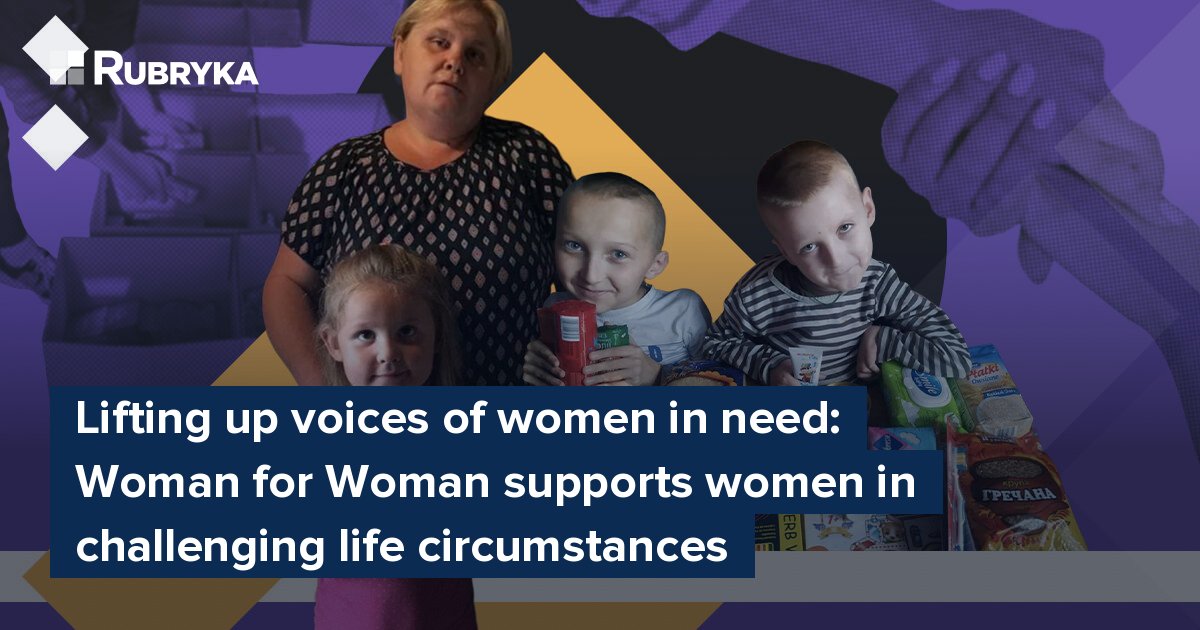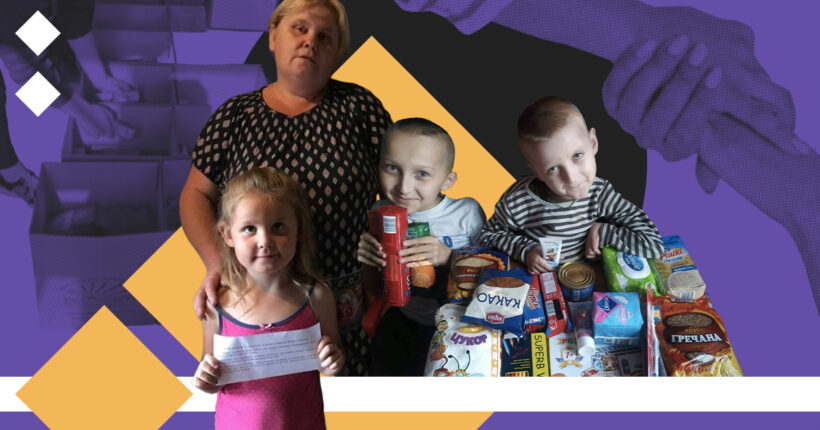
What is the problem?
Halyna, her daughter, and her elderly mother survived hell in Mariupol after Russia launched its full-scale invasion of Ukraine. They managed to evacuate with the help of their neighbors, who provided a car. There was no space for any of their belongings. A Russian shell destroyed the family's apartment, and the occupation authorities demolished the high-rise building where her mother lived. Now, the family has settled in Vinnytsia.
"We have nothing left. There is no work in the small village, and we don't even have anywhere to return to," Halyna shares.
This is a typical scary story for Ukraine, which continues to defend itself from the Russian aggressor every day. Rubryka explains where women who have lost everything can seek help.
What is the solution?
Woman for Woman is a platform created three years ago by the Lviv non-governmental organization Center Women's Perspectives to help women who find themselves in crisis life circumstances. The initiative collects and publishes the stories of women in need support, seeking donors for assistance. Marta Chumalo, deputy head of the Women's Perspectives Center, told Rubryka how the initiative developed its work during the war.
How does it work?
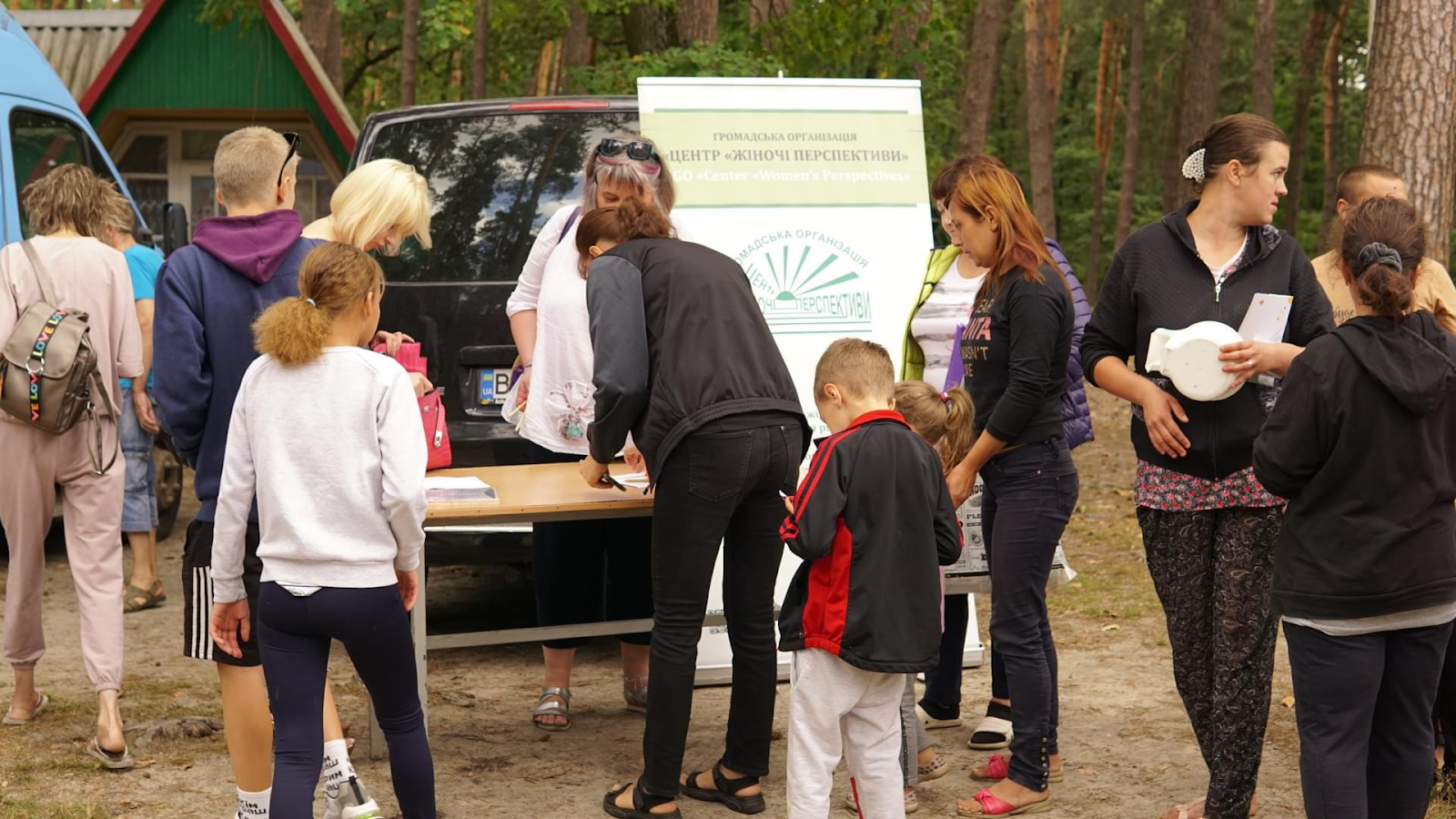
The idea of a platform to provide targeted support to women in need arose during the COVID-19 pandemic. The organization, which has been working to protect women's rights since 1998, began to receive requests for help from its clients who, due to the pandemic, lost the opportunity to meet the basic needs of their families.
Many women have now found themselves in challenging circumstances. Often, after losing their jobs, they had no choice but to return to abusive partners together with their children, because they could no longer pay for the rent of a separate apartment. Some could not afford to buy food or medicine, says Chumalo. At the same time, capable women began to contact the organization with offers to help.
"We decided to lift up the voice of women in need so that those who can help will know about them," Chumalo shares.
Initially, Women's Perspectives employees posted about women's needs on their own pages on social networks. When there were too many requests, a separate platform was created where anyone could tell their story and ask for help. Kyiv psychologists, colleagues of Chumalo, were among the first to respond to stories of women the Woman for Woman platform disseminated.
Later, more and more women who felt empowered to extend a helping hand to those in need began to join the initiative. It was not only financial support — they helped with clothes, products, and services, such as sewing or tutoring.
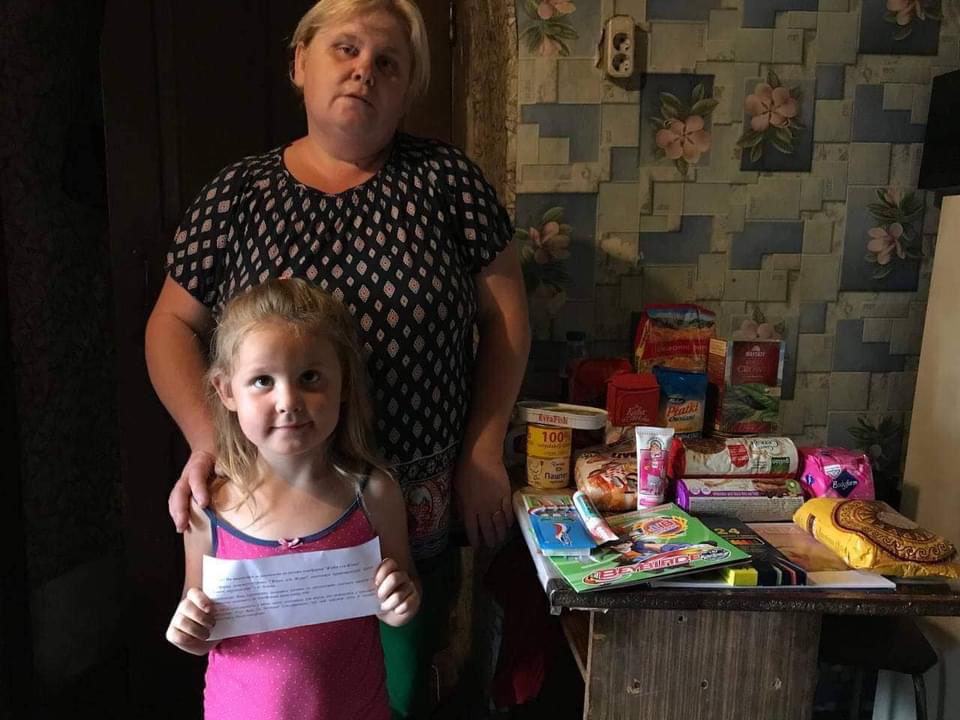
Mother and child have received help using the platform. Photo of the NGO Women's Perspectives
When the full-scale invasion began, the number of requests increased tenfold. "If earlier we completed two or three requests per week, during the war, hundreds of requests began to arrive during the same period," says Chumalo.
- Olena caught a cold while hiding from the Russian bombings in the basements of Kharkiv. Now she has kidney stones and needs surgery. Before the war, Olena worked as a confectioner, but today she collects and sells nuts in a small town in the Poltava region. If it weren't for the expensive treatment, she would manage somehow – but is forced to ask for support.
- The war destroyed Lina's house. Her husband went to the defense of Ukraine as a volunteer fighter, was first in the Kharkiv region, and has been fighting near Bakhmut in Ukraine's east in recent months. He went missing in January 2023. Lina and her young daughter have nothing left, and no one to count on for support.
- Kateryna had a peaceful family life with her son and husband in Vasylivka, the Zaporizhzhia region, expecting the birth of another child. Then, the war changed everything. For almost two months, the family lived in a damp and cold basement, and then the occupiers broke down the door to the house, took Kateryna's husband, and tortured him for three days — his jaw and nose were broken, and his hands were tied to the ceiling. The Russians wanted to get information about the city's military, partisans, and rich people – but after learning nothing, they released the mutilated man. The family managed to escape the occupation to Zaporizhzhia, where they rented a house and tried to collect funds for the surgery Kateryna's husband needed after torture. They spent all their money on treatment, even those collected from selling the baby's stroller.
- Lyudmyla lives closest to the front line of all those who applied to the initiative — in Toretsk, the Donetsk region, 500 meters from the first line of defense. There has been no water supply, electricity, or gas for a year. Locals cook food on fire, chop firewood, and collect water from springs. Only about 20 inhabited private houses remained there. Lyudmyla lives with her daughter, and her 3-year-old grandson would be happy to receive any help.
There are many other similar stories. Today, the initiative is focused on helping the most vulnerable — single women with children who have been displaced or live in the front-line zones — Donetsk, Kharkiv, Kherson, Zaporizhzhia, and Mykolaiv regions. For all of them, the platform offers simple and direct support tools — financial assistance, buying groceries or medicines, ordering services, and searching for treatment options. Many requests are also fulfilled, as Chumalo says, behind the scenes, without even getting to the platform.
"These are all very elementary, down-to-earth needs," says the initiative's co-founder.
Each story is carefully reviewed before publication. People who want to help can be sure that their good intention will really support a person in need.
Dos it really work?
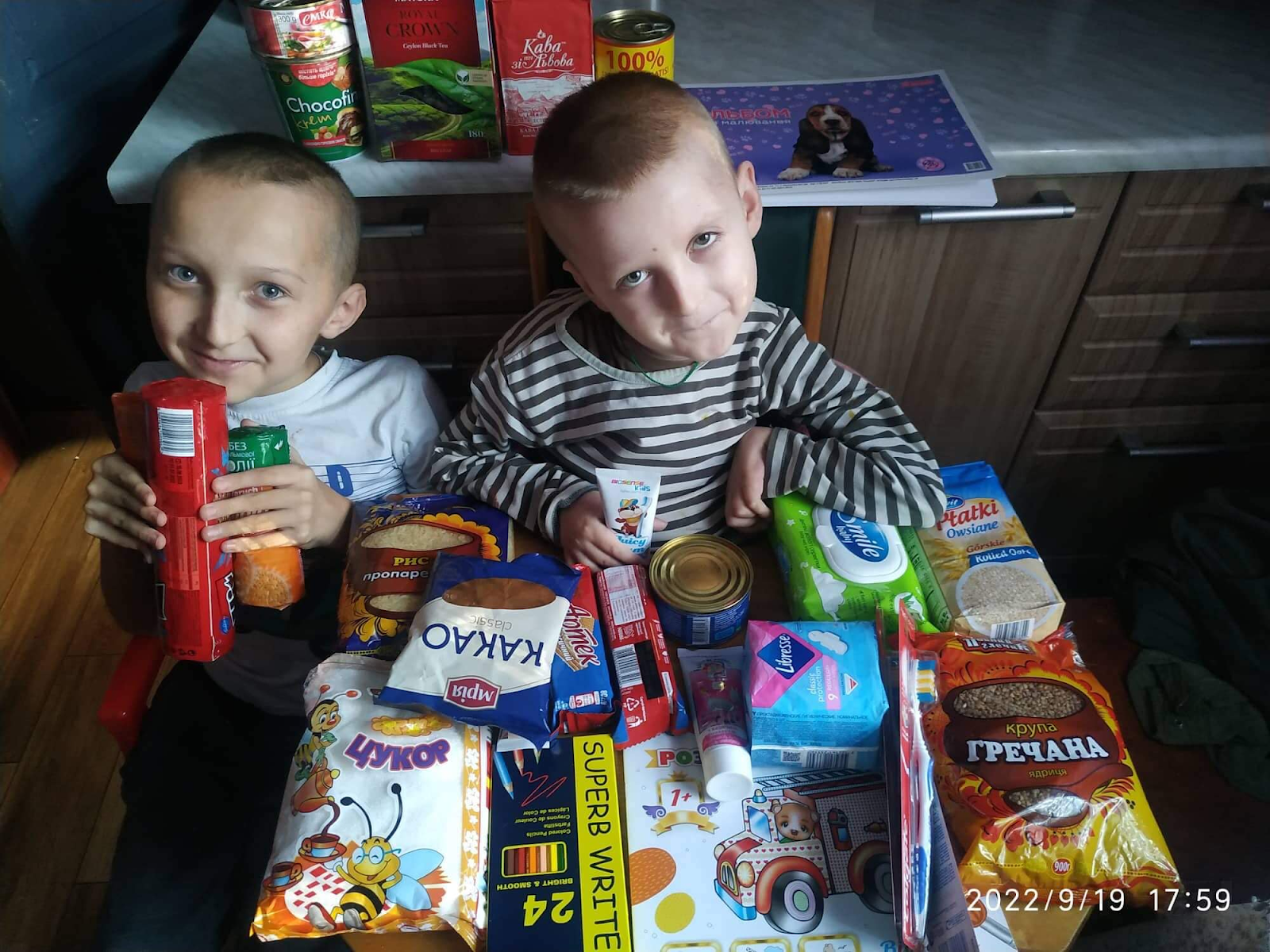
Children of one of the women who turned to the initiative for help. Photo of the NGO Women's Perspectives
The Woman for Woman initiative is not only an effective bridge between benefactors and those who need help. The NGO Women's Perspectives is actively developing support with food kits — every month, about 100 boxes of products are sent all over Ukraine if the postal operators work in the city. Unfortunately, delivering products to the occupied territory is almost impossible, but they try to help women there financially. Chumalo cites an example when village council representatives from the occupied Kherson region approached them. Only a few older adults remained in the village. Funds were sent to the head of the village council, and she organized help for the residents who could not evacuate in this way.
Requests come not only from the frontline areas but also from the rear, where people cannot help themselves after evacuation. For example, Halyna moved to Lviv from Kharkiv because her house was damaged. She cannot work because her cataract is progressing into blindness, and the operation costs ₴18,000, and the former kindergarten nurse does not have such funds. Halyna turned to the Woman for Woman initiative, and doctors from Lviv responded to her request and offered to do the surgery free of charge.
Many requests come from mothers with children. Families with many children often need smartphones so children can study, since many Ukrainian schools have been forced to hold classes online. Volunteers are also needed to tutor children of IDPs who have missed school because of the war, and now need extra help. In all these cases, benefactors also help the project. Men also participate by providing financial support.
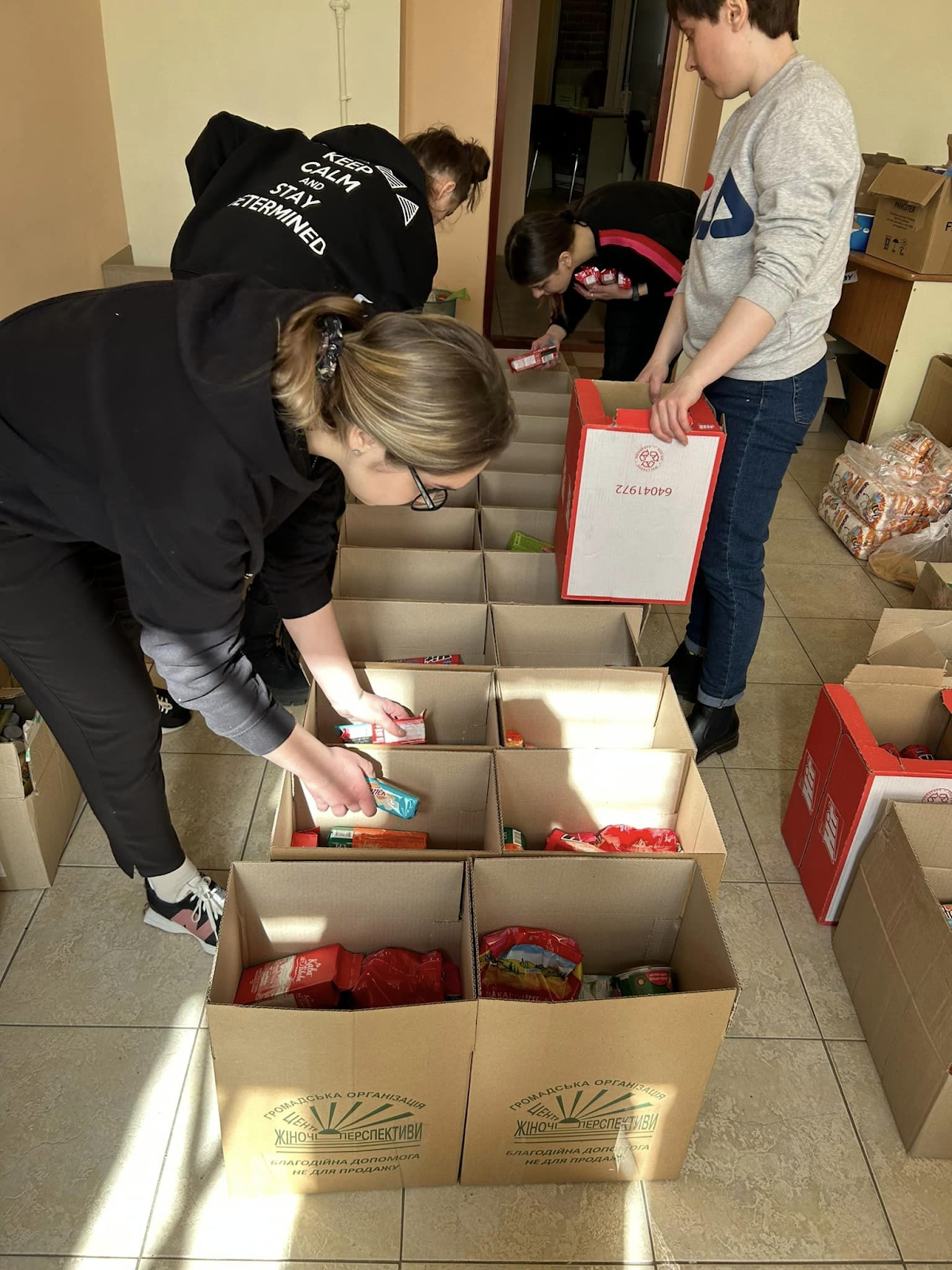
Employees of the organization pack food kits for their wards. Photo of the NGO Women's Perspectives
The deputy head of the Center Women's Perspectives notes that during the three years of the Woman for Woman project, it was possible to collect more than ₴2 million and to help 1,500 women.
Often, one-time help develops into a more extended interaction. Sometimes people become close. The initiative's employees visit women and help them with their children. In turn, women who have been given the opportunity to get back on their feet begin to help other women who are in trouble, to take care of the older ladies who live nearby, and to send further received children's clothes, which their children have already outgrown. This is how the cycle of goodness spreads.
"For me, this initiative is a great confirmation that the world is good, and even during the war, there is a place for humanity, solidarity, and compassion," Chumalo proudly says. The Woman for Woman initiative is an opportunity to touch someone, and ease their pain. It is about vulnerability, about the fact that safety is possible. "This project is about the fact that we are people," says the project's co-founder.
Even more useful solutions!
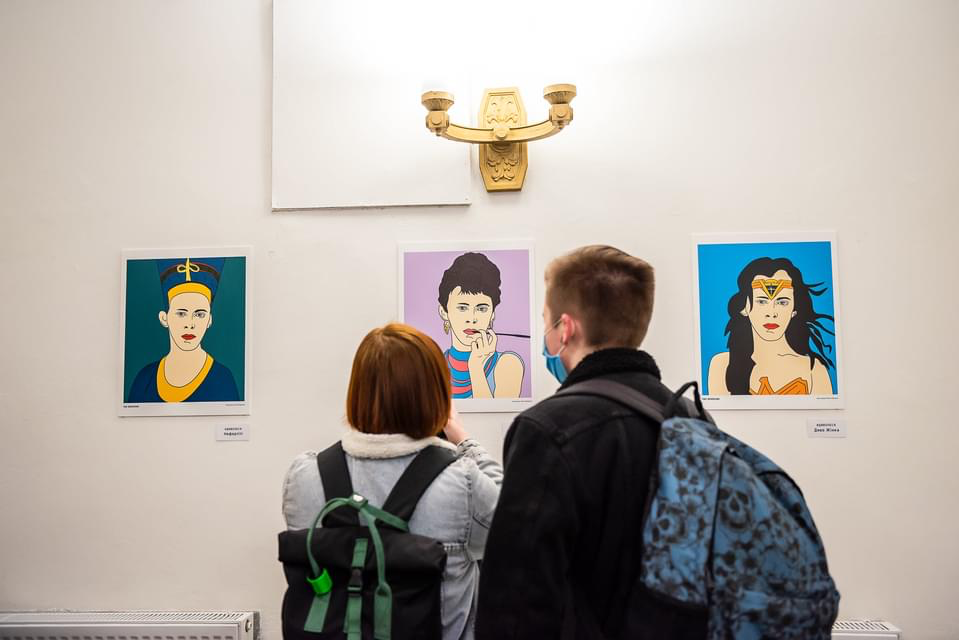
The Lesya Ukrainka Theater in Lviv organized the exhibition to support the Woman for Woman initiative
The Woman for Woman initiative sometimes attracts support from other organizations. For example, this was the case with the Lesya Ukrainka Theater in Lviv. The theater organized an exhibition of Ukrainka's portraits in various stylizations and then a large auction. Proceeds were sent to women whose stories were published on the site.
In January of this year, the department store Vsi. Svoi, which sells goods by Ukrainian manufacturers, placed information stands with QR-codes of stories and a call to help women who find themselves in crisis circumstances. This took place within the framework of the campaign "She needs help," carried out by the Zmina Center for Human Rights and the Center Women's Perspectives, together with the multi-brand platform.
"We can create a miracle for someone, for example, to help women in trouble. This is precisely why our colleagues' Woman for Woman project exists. We want as many people as possible to learn about it," said Iryna Vyrtosu, project manager at the Zmina Center for Human Rights.
If you also want to help women within the Woman for Woman project framework, contact its coordinator through the project's Facebook page, via phone +38 067 674 07 70, or by e-mail.
If you are a woman who would like to share your story and request help, you may fill out the form on the website.


